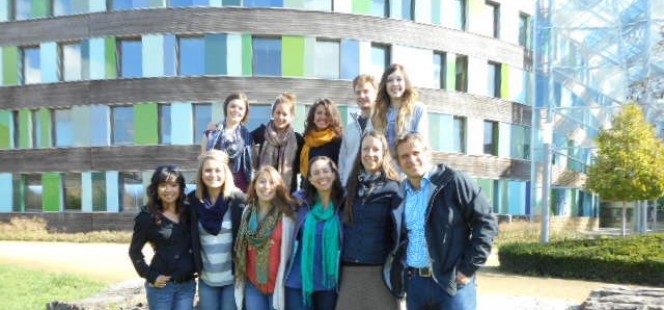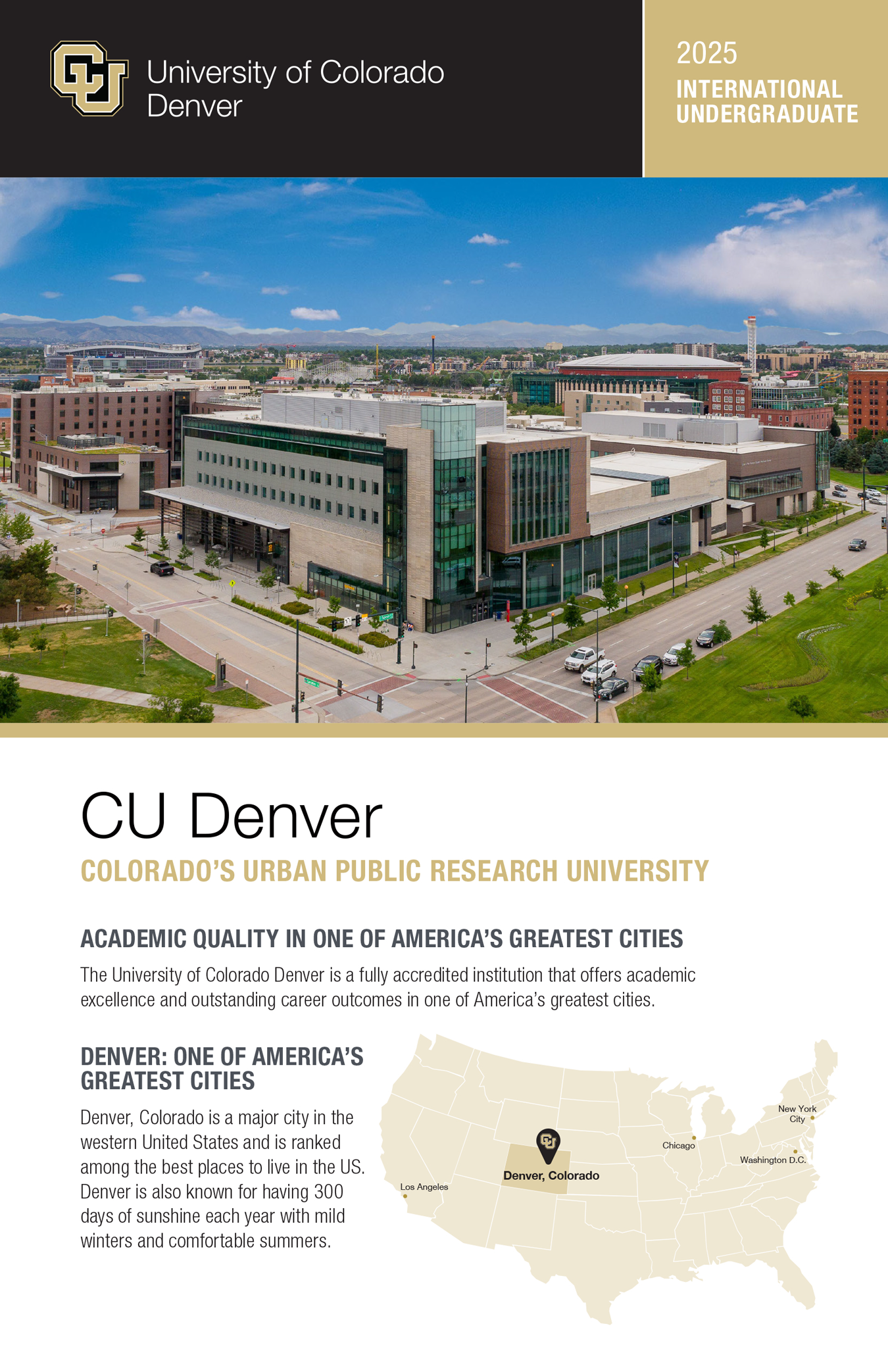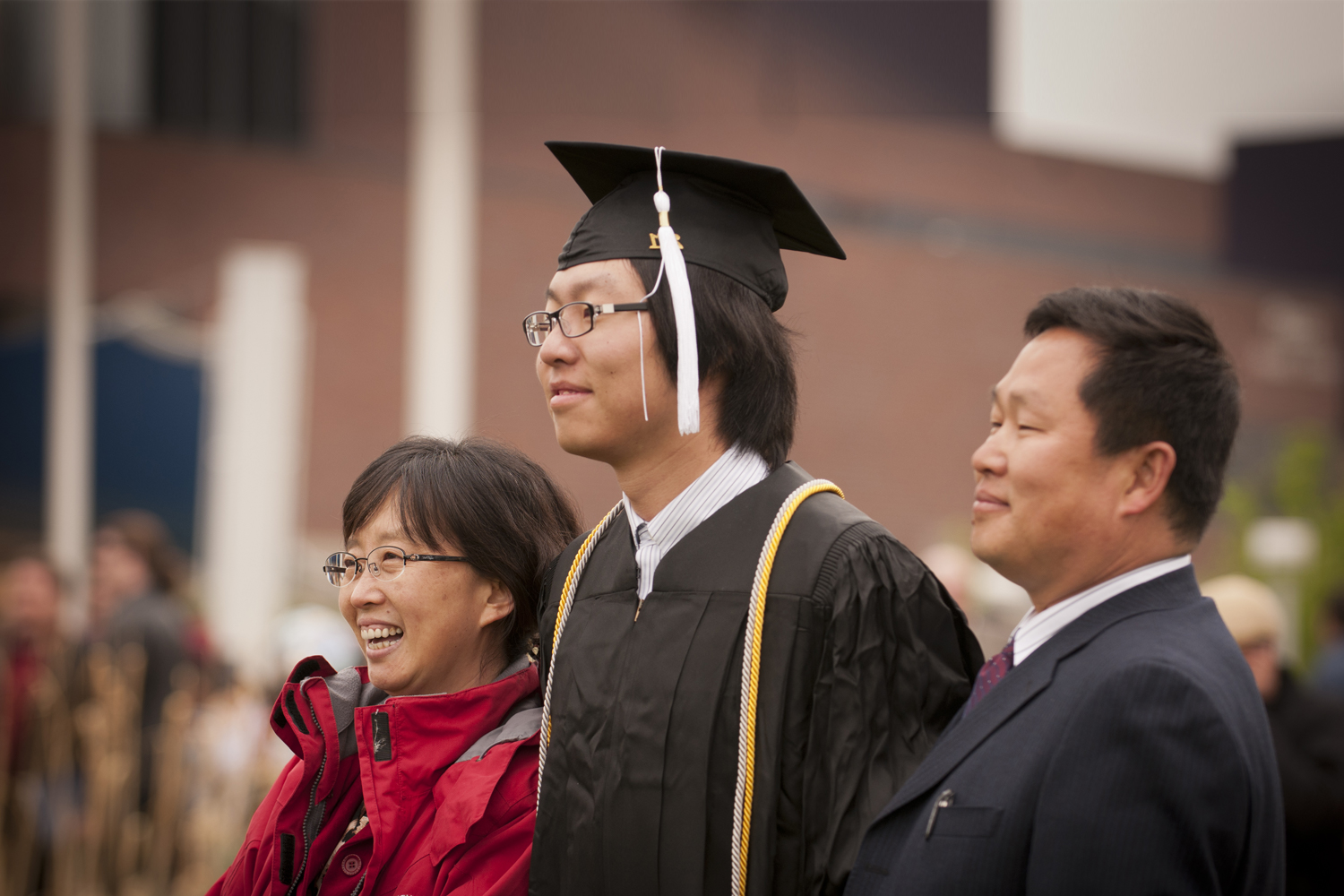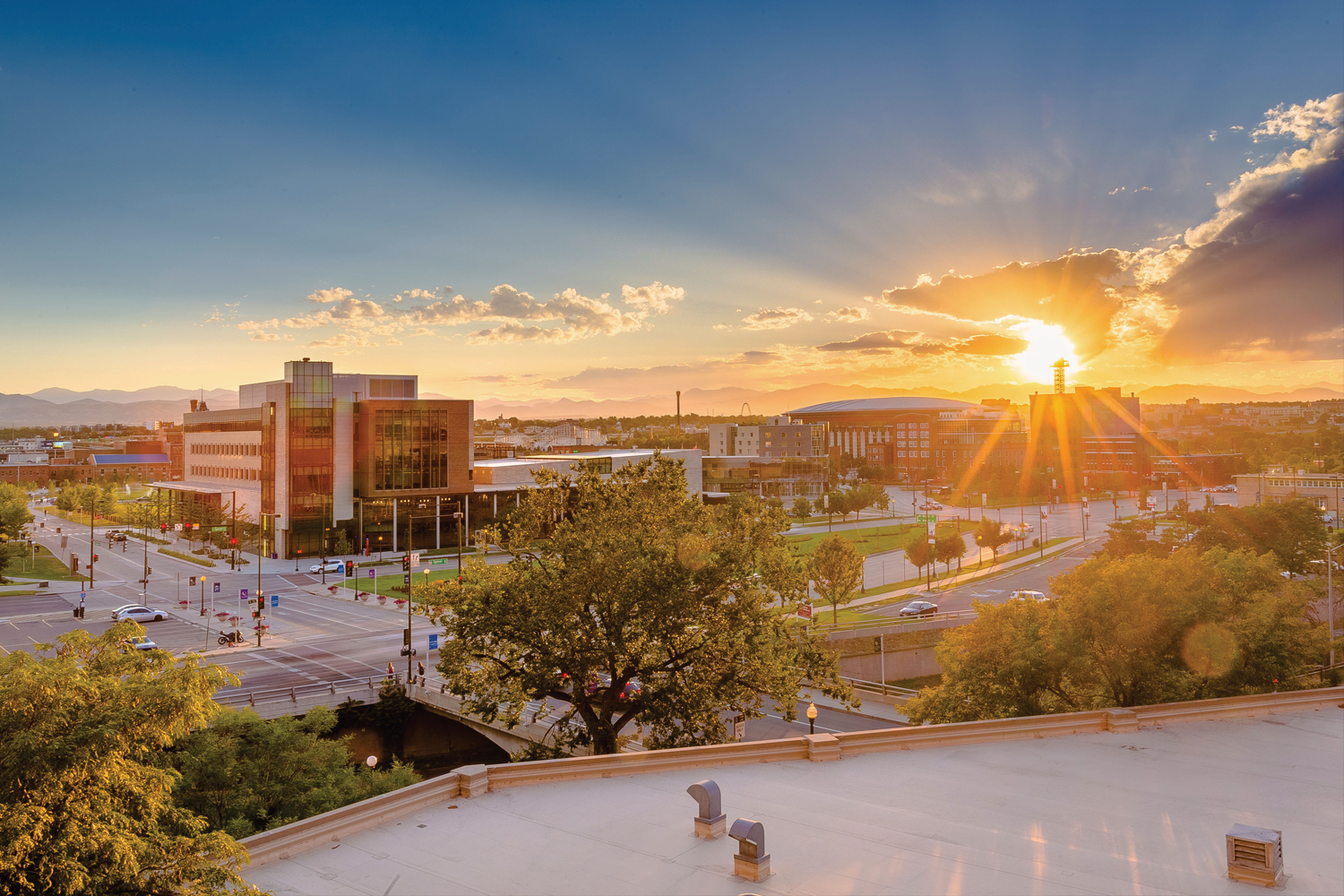Reflections from Berlin: Returnees Share Lessons on Sustainability
Apr 1, 2015
The nine students who participated in the inaugural semester of the University of Colorado Denver’s Sustainability in Berlin program last fall are back home, empowered with a new perspective on themselves and the world we live in. For these students, the semester-long program was an informative learning experience, offering both theoretical and practical lessons on sustainability. The students completed two courses focusing on issues of sustainability, participated in internships facilitated through a partnership with the renowned Ecologic Institute, and adapted to daily life in Berlin, a global capital and living classroom of sustainability.
The enriching academic experience completely changed the participants’ notion of what it means to “be sustainable”. Lisa Tran, an international studies major and sustainability minor, was impressed to, “be in a city where sustainability actually happens, rather than just talking about it.”
Kayla Gabehart, a history and psychology double major, explains how the program widened her perspective about all the aspects included in sustainability, and shed a new light on her own behaviors. “I not only got a really well-rounded theoretical perspective on sustainability and environmental politics, but also a hands-on, applied experience,” she says. Gabehart has actually changed some of her own wasteful and unsustainable behaviors now that she’s back. She also developed and expanded her world view. “I have a much different ‘take’ on international politics, economics, and affairs than when I left.” She also learned important lessons about herself and her own capabilities. “Being on my own in a foreign country made me more confident and affirmed my abilities regarding my own self-reliance and independence.”
Mikhail Lantsov, a psychology and international studies double major, said his most important lessons were on, “the diversity of the international community.” He gained an appreciation for other cultures and solidified his world view.
Through their internships, the participants gained valuable real-world experience in the field of sustainability. “[It] was a wonderful experience,” Gabehart says of her internship with the Nature Conservancy. “I learned a lot about development programs between developed and developing countries, and how organizations like TNC are trying to promote sustainable development,” she explained. Tran’s position on the events team at the Ecologic Institute opened her eyes to the realities of business practices. “Never did I realize how much work goes into planning an event until I interned at Ecologic!” she says. Lantsov thinks his internship at the Expert Council for Migration and Integration was the best and most effective part of the program, by offering him a “well-rounded experience,” and setting him up for future opportunities.
Back in the United States, the students are readapting and dealing with reverse-culture shock, a common phenomenon experienced after returning home from study abroad. “It’s been hard trying to adjust back to American ways,” Tran notes. Reverse-culture shock hits in small and large ways that include reevaluating cultural norms and ideas about one’s own culture.
“Hearing people speak English around me, using dollars, and not having such easy and constant access to public transportation were all very strange upon first returning,” Gabehart explained. For Tran, “the hardest part about coming home was [readjusting to] the ideas of how people in Europe view the world versus in the United States.”
The students feel that they will always have a “home-away-from-home” in Berlin, and many hope to return someday. “What I will miss most is truly the culture—the importance placed on sustainable practices, the public transportation and its wide usage, and particularly the focus on family and friends rather than life revolving around work,” says Gabehart. Lantsov, on the other hand, will miss the food the most.
“Berlin is an incredible city in terms of general culture and lifestyle, history, and especially sustainable practices. Additionally, the classes you take there are really eye opening, and the internship placement is incredible and an invaluable hands-on experience,” says Gabehart. In comparison compared to many other study abroad programs, she said, “it’s very affordable!”
To other students considering enrollment in the program, Gabehart advises that students fully immerse themselves in the culture. “Study the language, do as the locals do, explore the cultural sites of the city, eat the local cuisine, ride public transportation and walk everywhere.” Tran, speaking from her personal challenge with the language barrier, advises practicing a little bit of German each day before the program starts. Lantsov explained, “Be proactive every day, and try new things.”
Tran agreed: “It’s always great to challenge yourself and place yourself outside of your comfort zone.” And for those who are willing to step outside their comfort zone, the Sustainability in Berlin program provides immense rewards.
LEARN MORE
To learn more, visit online: sustainabilityinberlin
By Emma Sletteland






